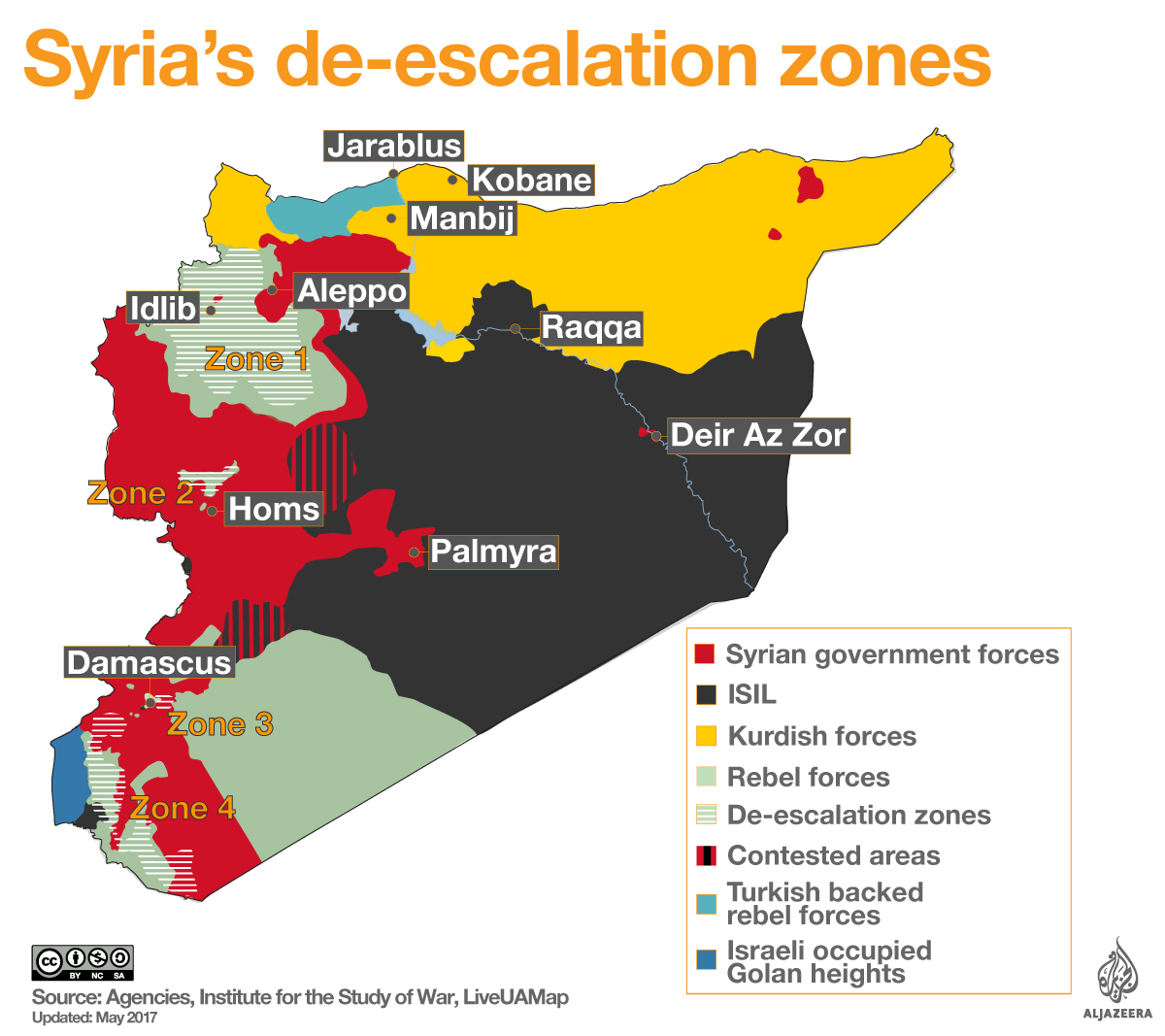Qatar FM: No substitute for Bashar al-Assad’s departure
Qatari foreign minister says ‘de-escalation zones’ are a step towards reaching a solution and not the solution itself.

The implementation of de-escalation zones should not be used to delay a solution to the Syrian conflict and the question of political transition, Qatar’s foreign minister has said.
Speaking to Al Jazeera in Washington, DC, on Monday, Mohammed bin Abdulrahman Al Thani said President Bashar al-Assad ought to leave office in any final peace agreement.
He said the de-escalation zones “are a step towards reaching a solution and not the solution itself”.
“There should be a clear message that political transition is based on the Geneva I declaration, which ends with Bashar al-Assad and his regime leaving power and the establishment of a transitional authority.”
Al Thani’s remarks came as the office of Staffan de Mistura, the UN special envoy to Syria, announced that talks between the Syrian government and the opposition on ending the war will reconvene in Geneva on May 16.
READ MORE: Syrians sceptical of ‘de-escalation zones’
De Mistura says he hopes that an agreement reached in Astana, Kazakhstan, last week involving Russia, Iran and Turkey – to set up the Russian-sponsored de-escalation zones – will be fully implemented.
On Monday, Walid al-Muallem, Syria’s foreign minister, said there would be no role for the United Nations or other “international forces” in the so-called de-escalation zones but that Russia saw an observer role for its military police.
He gave no further details.
“We do not accept a role for the United Nations or international forces to monitor the agreement,” he said.
Russia said on Monday that it had tabled a draft UN Security Council resolution backing the de-escalation zones deal.
Military advantage
A source at the UN told Russia’s Interfax news agency that “a vote on the draft will take place possibly this week”.
Russia and regional power Iran have helped President Bashar al-Assad gain the military advantage against rebels fighting for six years to unseat him.
Russia has led most of the recent diplomatic efforts to end the conflict. Muallem also addressed what he described as an apparent change of attitude towards Syria by the US administration.
“It seems the United States, where [President Donald] Trump has said the Syrian crisis has dragged on too long, might have come to the conclusion that there must be an understanding with Russia on a solution,” he said.
|
|
Muallem cautioned that if forces from Jordan, a supporter of rebel groups in southern Syria, entered the country without coordinating with Assad’s government, it would be considered an act of aggression.
However, he said Syria was not about to confront Jordan.
Speaking about the military situation inside Syria, Muallem said regaining Deir Az Zor, a city and province occupied by the Islamic State of Iraq and the Levant (ISIL) group in the east, was the “fundamental objective” of government forces – and more important for the average Syrian – than Idlib.
Asked about US backing for Kurdish forces battling ISIL, also known as ISIS, in northeast Syria, he said what Syrian Kurds were doing against the group was “legitimate” at this stage and fell within the framework of preserving Syrian unity.
The Syrian civil war was born from unrest that started in March 2011. Since then, hundreds of thousands of Syrians have been killed.
